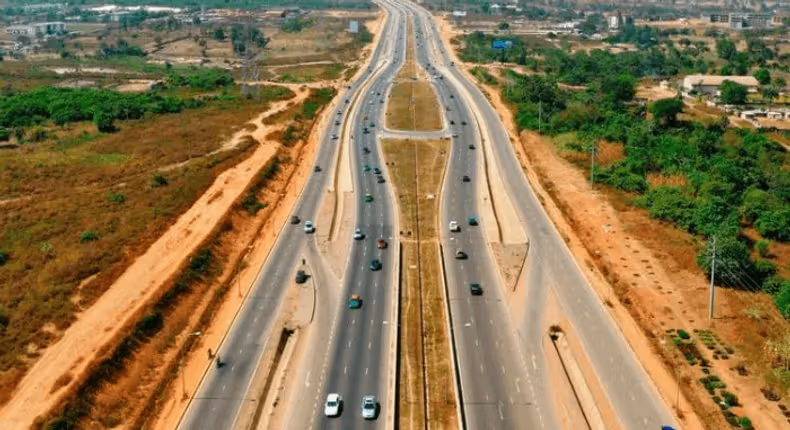Conversations about the Lagos-Calabar road project won’t disappear anytime soon, especially on social media, until the government delivers what it promised.
The Lagos-Calabar highway project has been a subject of controversy since the Federal Government reignited the plan for its construction.
The criticisms trailing the project are multifaceted and it appears conversation won’t disappear anytime soon, especially on social media, until the government delivers what it promised.
While many Nigerians have applauded the idea of a new road linking the South-West and the South-South and opening up rural communities along nine coastal states, others have questioned the urgency of implementing such a monumental project when several interstate roads across the country are in bad shape.
Here are five controversies surrounding the 700-kilometre infrastructure.
Demolition of properties
The demolition of businesses and properties was the first controversy that drew Nigerians’ attention to the Lagos-Calabar highway construction.
The decision to remove all properties standing on the project’s right of way sparked a long and messy bickering between the government and the owners of the Landmark Beach Resort on the one hand, and on the other hand, the government and opposition politicians.
The demolitions of a part of the beach subsequently sparked outrage in some quarters as citizens knocked the government for starting the project in Lagos where business establishments that create thousands of direct jobs were destroyed instead of Calabar, where, by assumption, no business or property would have to be pulled down.
Contract awarding/Conflict of Interest
Critics of the project have also raised concerns about the circumstances surrounding the award of the project’s contract. They argued that the process contravened the 2007 Public Procurement Act as it did not go through a competitive bidding process.
Many Nigerians have also registered their concern about Hitech Construction Ltd, the company contracted by the Federal Government to handle the project.
Hitech Construction Ltd is owned by Gilbert Chagoury, a Nigerian-Lebanese believed to be a friend of President Bola Tinubu.
Corroborating this sentiment, former Vice President, Atiku Abubakar, recently disclosed that the president’s son, Seyi Tinubu, is a director on the board of CDK Integrated Industries, a subsidiary of the Chagoury Group.
Atiku noted this constitutes a conflict of interest, adding that the president put his interest ahead of the Nigerian people.
Cost of the project
The construction of the road is expected to gulp a staggering ₦15 trillion, however, the controversy surrounding its bidding process has triggered questions about its cost.
The government has already approved ₦1.06 trillion to construct the first few kilometres starting from the Eko Atlantic to Lekki Deep Seaport. According to the Minister of Works, David Umahi, the road’s construction will cost ₦4 billion per kilometre.
However, since the contract award did not go through a competitive bidding process, Nigerians wonder how the government arrived at the valuation it announced for the project.
Duration of the project
The supervising minister has said that the construction of the road will take eight years to complete. However, critics of the project have described the claim as the government’s braggadocious remarks to sell the infrastructure to Nigerians.
Given the history of road projects like the Lagos-Ibadan Expressway — a 135-kilometer road that’s been under construction for over 10 years — many Nigerians believe the coastal road cannot be completed within the stipulated time frame by the minister.
Environmental and Social Impact Assessment
The Environmental and Social Impact Assessment (ESIA) is another major concern Nigerians have raised about the Lagos-Calabar road project.
After work had started, the FG sent a letter dated April 18, 2024, to Nigerians living in the Section 1 and 11 areas of the highway in Lagos to attend a workshop to “ensure that the project is developed in a responsible and sustainable manner.”
This indicated that the government didn’t conduct the environmental impact assessment before commencing the project.

